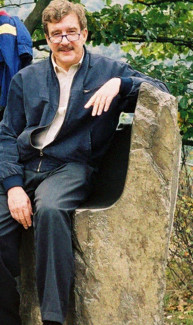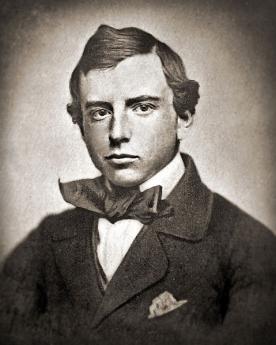Related Topics
...Trying Out the New Constitution
George Washington's first term as President was much like a continuation of the Constitutional Convention, with many of the same participants.
Albert Gallatin
A magnificent but largely forgotten man.
Right Angle Club 2012
This ends the ninetieth year for the club operating under the name of the Right Angle Club of Philadelphia. Before that, and for an unknown period, it was known as the Philadelphia Chapter of the Exchange Club.
Muddle: The War of 1812

|
| H.G. Callaway |
HOWARD Callaway is an old friend and an expert historian of the War of 1812. This is the two hundredth anniversary of that war, so Howard is in demand as a speaker. At a recent meeting of the Right Angle Club, he gave a fascinating recital of his analysis of the reasons for the war, and its subsequent upheavals in American politics. The audience at the Club stayed well beyond the allotted hour to ask questions and finally had to be sent home by the moderator. We will here try to summarize his views fairly.
American impressions of this war come largely from Henry Adams, who wrote a nine-volume history of it, concluding it was a senseless muddle. Henry Adams however, was the grandson of John Quincy Adams, and the great-grandson of John Adams, both of whom were active participants of the event, its causes, or its consequences. He later killed himself, having displayed fugues of depression in his autobiographical Education of Henry Adams. No matter how serene his writing style, you have to be a little careful about the views of such an involved person. New England hated this war almost universally, not a single Federalist congressman or Senator voted for it, and the Federalist political party essentially dissolved as a consequence of it. New England even considered secession. In particular, maritime New England hated the two-year embargo on European trade which Thomas Jefferson had imposed as a measure short of war. Since Jefferson had stripped the Army down to 3000 soldiers and the Navy down to a single ship -- he didn't have many choices. Great Britain at that time had eight hundred ships in its navy. When it came, the war was mainly supported by the more rural South and West of the nation. It was the war of the "republican" political party of Jefferson and Madison, actively demonstrating that Virginia had defeated the Federalists and now would dominate American politics for decades. Regardless of details, the War of 1812 made it clear that New England was not the central essence of America any longer; the rest of the country would not follow its lead.

|
| Henry Adams |
His opponents called it "Mr.Madison's War", and the bad management of it certainly damaged the later reputation of the principal author of the Bill of Rights, perhaps the Constitution. It's pretty hard to maintain the image of a Founding Father when you get us into a war that could not be won and was not even conducted well. Whatever Madison's early skill as a political philosopher, his later execution as its chief officer was a shambles. He was indeed a clever politician, never completely revealing his true beliefs, so it is a question how much he was really in favor of the war, and to what degree he could merely see how the wind was blowing. It might be argued, for example, that a supporter of the constitutional intent that Congress would declare wars, the president would only command them, might well have been yielding reluctantly to his party's clear wishes. Howard does not think so.
There was no time to expand on the evidence, but our speaker is convinced that Madison and the whole "Republican" party were anxious to sever the cultural ties to England and turn the nation to looking Westward. Certainly that was Jefferson's view, and certainly, the nation entered a century of turning its back on Europe, England in particular, becoming in one word, isolationist. That's the sort of grand strategy which might offer coherence to the subsequent Wilson and Franklin Roosevelt reversals of attitudes, which contain a major element of anglophilia.
Quite a lot to think about, considering what a bumbling rout the War seemed to be in 1812.
REFERENCES
| Alexander James Dallas: An Exposition of the Causes and Character H.C. Callaway ISBN-13: 978-1906716288 | Amazon |
Originally published: Friday, October 19, 2012; most-recently modified: Friday, May 24, 2019